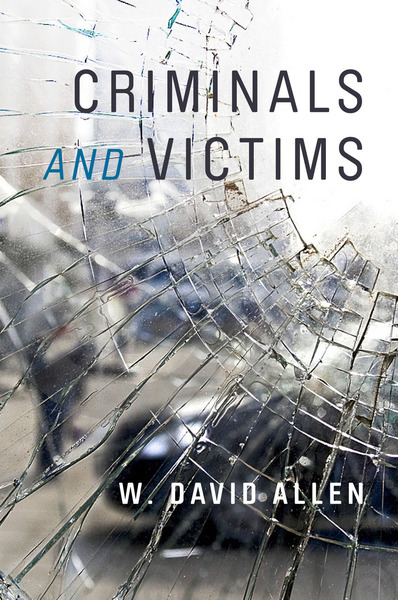
2011
312 pages.
$75.00
Hardcover ISBN: 9780804762526
Ebook ISBN: 9780804777599
Criminals and Victims presents an economic analysis of decisions made by criminals and victims of crime before, during, and after a crime or victimization occurs. Its main purpose is to illustrate how the application of analytical tools from economics can help us to understand the causes and consequences of criminal and victim choices, aiding efforts to deter or reduce the consequences of crime. By examining these decisions along a logical timeline over which crimes take place, we can begin to think more clearly about how policy effects change when it is targeted at specific decisions within the body of a crime.
This book differs from others by recognizing the timeline of a crime, paying particular attention to victim decisions, and examining each step in the crime cycle at the micro-level. It demonstrates that criminals plan their crimes in systematic, economically logical ways; that deterring the destruction of criminal evidence may deter crime in general; and that white-collar criminals exhibit recidivism patterns not unlike those of street criminals. It further shows that the degree of criminality in a society motivates a variety of self-protection behaviors by potential victims; that not all victim resistance makes matters worse (and some may help); and that victims who report their crimes do not receive high returns for going to the police, helping to explain why some crimes ultimately go unreported.
About the author
W. David Allen is Associate Professor of Economics at the University of Alabama in Huntsville. He has published numerous journal articles in labor economics and crime economics. Criminals and Victims is his first book.
"Allen has provided a resource that will be useful both to economists interested in the study of crime and to the best of the new breed of criminologists who are interested in the tools developed in other social sciences. His analytical skills are complemented by a careful and intuitive explanation of the theoretical results and a clear discussion of the empirical consequences of the underlying theory."
—Stephen T. Easton, Professor of Economics, Simon Fraser University
"Allen demonstrates how economic theory can provide valuable insight into relatively understudied aspects of criminal and victim decision making, offering clear examples of how that theory can be empirically tested. In each chapter, Allen lays the foundation of a new research agenda for social scientists interested in crime."
—Emily Owens, Cornell University, Department of Policy Analysis and Management